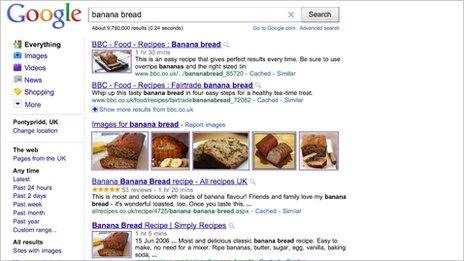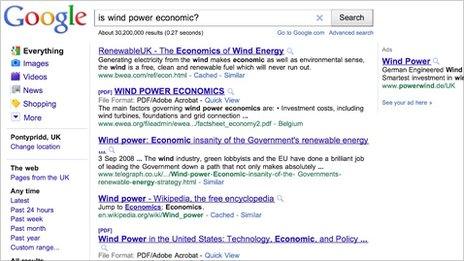Are we trapped in our own web bubbles?
- Published
- comments
Rory Cellan-Jones tests the theory that personal filters are inflicted on us when we use the internet.
Is the internet entering the era of personalisation, where web firms know so much about us that they are able to serve us up a view of the world which is like looking in the mirror?
That's the argument of Eli Pariser's book The Filter Bubble, which we explored in a film for Newsnight on Tuesday evening.
Mr Pariser says web giants, from Google to Facebook to AOL, are racing to gather more information about our likes and dislikes so that they can send us targeted advertising - which will prove more valuable to them.
He fears this will mean that we don't get to see information that challenges our world view, and will ultimately be bad for democracy - if you're an American in favour of gun control, for instance, you will tend to see information that reflects your views, while members of the National Rifle Association will be served up sites that chime with their stance.
But Sam Barnett, whose advertising technology firm Struq helps to track and target consumers according to their habits, told us that personalisation was a positive force.
He says that better targeted advertising is vital to the economics of the web - and that will mean that we can all go on enjoying the free services we get now.
We also tested an example of personalisation that Eli Pariser cites in his book. He found that Google's personalised search system, switched on for everyone at the end of 2009, meant that two people doing identical searches got very different results.
He cites an example where two people from the same area of the United States search for BP - one finds investment information, the other news about the oil spill.
I did a number of Google searches - then visited two neighbours and asked them to type the same terms into the search engine. Lo and behold, they confounded the Pariser theory and came up with identical results to mine.
Here are the top links we all found for the term "is wind power economic?" and then "banana bread" .


Maybe three people in the same street were too similar - in location anyway. So let's try to crowdsource this experiment. Try the searches yourself and let us know whether you too get the same results as mine.